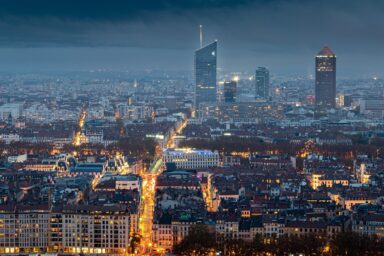Europe has always been a global leader in green politics, it is essential that EU countries have just agreed on the 2040 climate target, former Czech Environment Minister Bedřich Moldan says before the COP30 global climate conference in Brazil kicks off. In his view, China’s green efforts should not be underestimated.
After the US withdrew from the Paris Climate Agreement and China failed to meet its climate finance commitments, the global fight against climate change appears to be on the defensive. Do you see it that way too?
I call it “green decline,” and it is a truly massive movement, practically everywhere in the world. However, this is at odds with scientific knowledge—the problem of climate change has not disappeared, on the contrary. All crises keep continuing and are, in fact, accelerating.
What is the reason for this?
As usual, there are a number of causes. In my opinion, the main one is the Russian aggression in Ukraine. This has awakened many countries around the world in the sense that they have begun to focus on priorities other than environmental issues, mainly armament. In short, charity begins at home. Furthermore, various populists and autocrats who are not at all inclined towards climate protection are mushrooming around the world. In a way, this also applies to the United States, as evidenced by their withdrawal from the Paris Agreement, as you mentioned. As we know, President Trump is very consistent in keeping his promises, and he did so immediately after taking office.
But the real basis is the war in Ukraine. The world has simply woken up and the green agenda has been sidelined. However, it is not just about political leaders, but also about a shift in moods and preferences in society, including in Europe.
You might be interested
I have no doubt EU will have a stronger position at COP30 thanks to the last-minute approval of its 2040 climate target. – Bedřich Moldan
On the other hand, we are talking shortly after the EU member states finally agreed on a climate target for 2040. In the end, there are only relatively minor changes compared to the European Commission’s original proposal. From a green policy perspective, that’s quite a success, isn’t it?
Undoubtedly, yes. Europe is continuing at its environmental pace. The general strategy called Green Deal is valid, and it is worth emphasizing that the basic principles of the Green Deal have been transformed into binding laws (the European Climate Law, ed.). And there is a binding timetable that is running and has so far been successfully implemented. By this I mean that any potential changes to this basic law would be extremely complicated.
Will the EU have a stronger position at COP30 thanks to the last-minute approval of its 2040 climate target?
I have no doubt about it. That’s why there was so much pressure to reach a consensus.
Europe as a permanent green leader
Is the EU really the last major driver of global green policy, as many interpret it? The United States has withdrawn from its commitments, China is not doing much…
Europe has always been a world leader, and that continues to be the case. But I would disagree when it comes to China. Yes, it is an autocratic, communist state and its statistics cannot be entirely trusted, but it is clear that China has been systematically preparing for the large-scale development of green technologies for many years. They are now world leaders in a number of areas. It is not just about available materials, but also about dominance in the production of certain key components, such as solar panels. Other examples include electric cars and wind turbines. China is now the clear leader in wind energy.
China is not reducing its climate commitments in any way, even though these have always been relatively vague. They have committed to achieving carbon neutrality by 2060 and are well on their way to meeting that goal, perhaps even sooner.
As for the United States, federal policy, as embodied by President Trump’s stance, is one thing, but industry and individual states continue to invest heavily in green technologies. So the change in the US appears to be only superficial and is undoubtedly only temporary. Decarbonization continues in America as well.
At COP30, the Brazilian president, Mr Lula da Silva, will do everything he can to shine on the world stage including concrete climate commitments. – Bedřich Moldan
What are your expectations for COP30?
COP30 needs to be viewed from a historical perspective. It is the thirtieth such event in a row, so it is a continuous process. In my opinion, it is important to note that the last two global climate conferences were held in countries that can be described as heavily “fossil fuel-dependent”…
…Azerbaijan and the United Arab Emirates…
Yes, the case of Azerbaijan in particular was outrageous. After all, it is a country whose economy is completely dependent on oil extraction and processing. Now, the COP30 conference in Brazil is expected to have a completely different focus. Let’s not underestimate this, not least because regional powers such as Brazil and India are gaining importance in the environmental sphere, while the US is losing its dominance.
Another issue is the domestic political aspect. The current Brazilian president, Mr Lula da Silva, has always emphasized environmental protection and will do everything he can to “shine” on the world stage. For example, by making as many concrete statements and commitments as possible. From a historical perspective, the shift is clear. Scientists have been warning about climate change for at least 50 years, and during that time, perceptions of the problem have changed radically. At first, there were questions whether it was a serious problem and who or what was to blame. Now it is clear that it is a fundamental global socioeconomic issue. Only the individual parameters are becoming more precise.
Today, from a scientific point of view, it is clear what climate change is all about. The question is what to do about it in terms of technology, finance, and so on.
So you see progress in global environmental policy?
Absolutely, definitely. Renewable energy sources are developing at a tremendous pace, and investment in them has already exceeded investment in fossil fuels. That gives us hope.
China’s tricky position
How is the situation in terms of financing the fight against climate change? Less developed countries argue—and there is a certain logic to this—that industrially advanced countries are responsible for the problem and should also pay for climate measures. However, some major polluters, such as China, are unwilling to do so. What can be done about this?
The Chinese, for obvious reasons, refuse to accept that they are a superpower and position themselves as a relatively poor country (measured by GDP per capita, ed.). So they don’t want to pay. On the other hand, they use their climate investments in less developed countries as a mean of global economic expansion. But they do so bilaterally.
Do I understand well that for China, green investment is a way how to conquer other countries economically?
Yes, exactly. They are in a pretty good position to do that—as we have already mentioned, China is a world leader in a number of green technologies. In short, they have the resources.
In other words, is China less idealistic than Europe when it comes to green policy and more focused on its own interests?
I have no doubt about that.
Bedřich Modan (*1935) was the first Czech Environment Minister (1990–1991). A world-renowned expert in the field of the environment and one of the most important representatives of the Czech environmental school, he played a significant role in the creation of Czech environmental legislation after November 1989. He contributed significantly to environmental laws in the Czech Republic.











